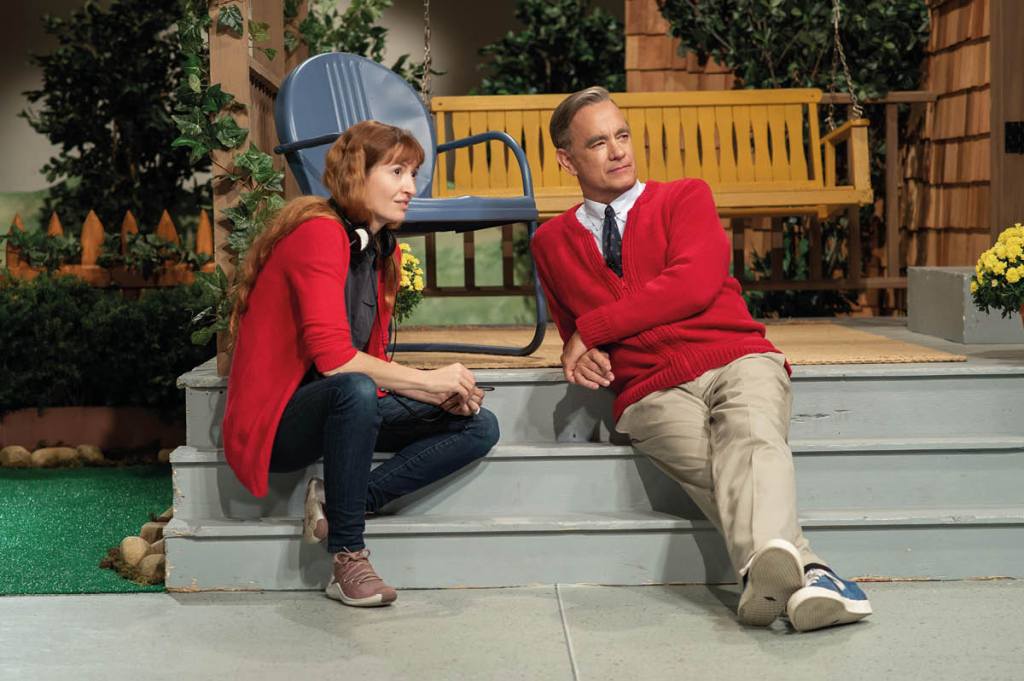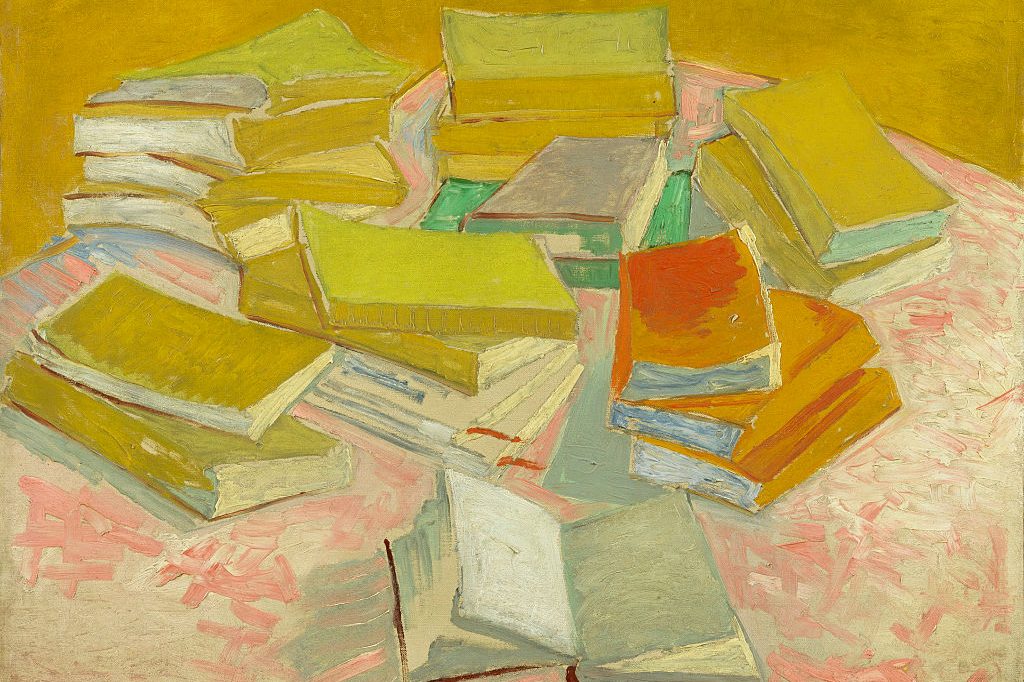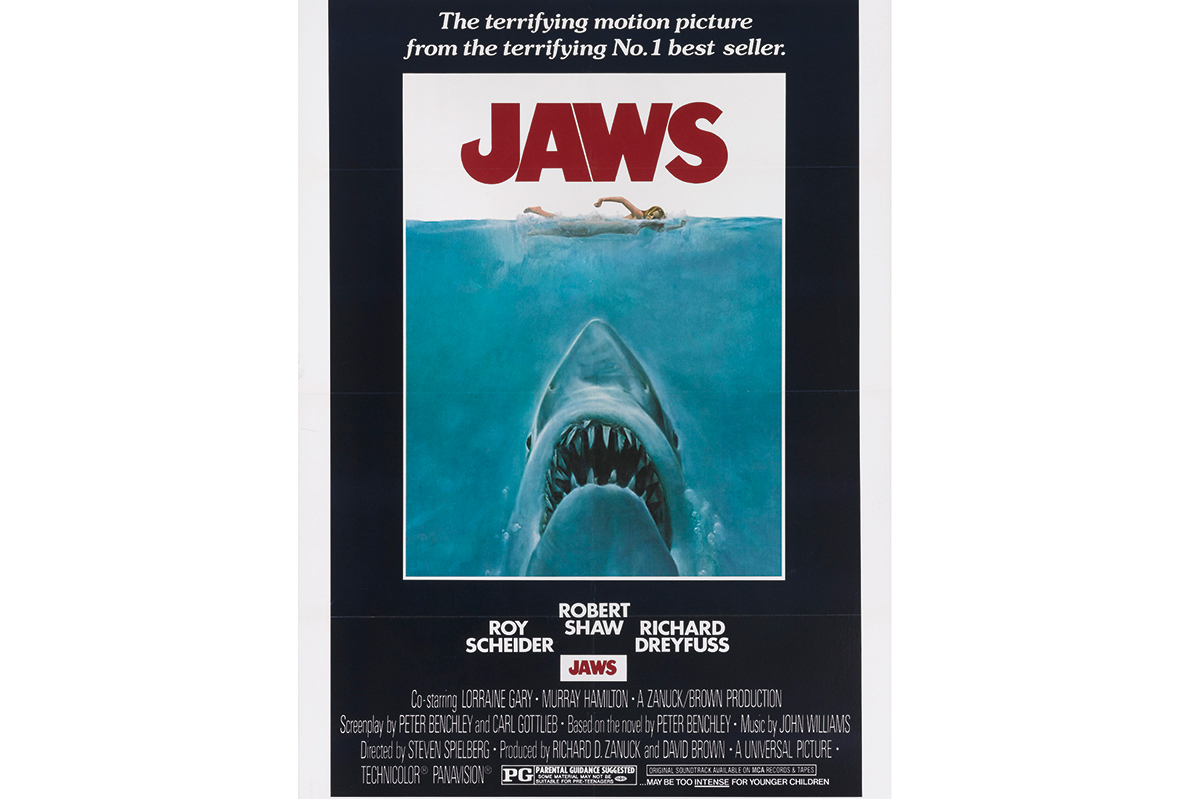The French novelist Michel Houellebecq recently appeared in a pornographic film. As one does, of course, although he claims that it was by accident. Nevertheless, there aren’t many authors-turned-actors, even by design. (Graham Greene had a small cameo in Truffaut’s Day for Night; Maya Angelou pops up dispensing folksy wisdom in How to Make an American Quilt.) You will, however, lose count of the thespians who clamor to adorn the printed page; I will not mention any, but you can look them up, should you wish to.
Tom Hanks (the actor) has produced his debut novel, The Making of Another Major Motion Picture Masterpiece. The title is, I think, supposed to be arch, in a David Eggers, Heartbreaking-Work-of-Staggering-Genius kind of way. And also in case Hanks ever films the book, and someone asks him what he’s making, he’ll pause for just the right amount of time, and quip: “I’m making the motion picture of The Making of Another Major Motion Picture Masterpiece. Let’s hope it will be another major motion picture masterpiece!” And he will laugh, and so, probably, will everyone else.
Look, I’d bet Tom Hanks is a pretty nice person, given the general cut of movie stars’ jibs. Goodness knows his likable face has been around as long as I can remember. The actual New Yorker has published one of his short stories, and I would like to believe even that august publication is immune to the glitter of stardust when it comes to quality control.
TMOAMMPM is ambitious, and for that Hanks cannot be faulted. There’s a prologue by a character who is a Creative Writing professor who’s writing what follows — look, metafiction!
Then we switch to a straight narrative, with five-year-old Robby, who likes to read war comics in his apple-pie American house. It’s 1947 which was, as Hanks tells us presumably with tongue in cheek, not long after “Nazi Germany invaded Poland.”
Robby’s artistic impulses provide the thematic center, as he becomes a comic book artist. Robby’s uncle, Bob (no one warned the Creative Writing professor not to give characters similar names) is a drifter, a combat veteran who had used a flamethrower in Vietnam. This horrific method of dealing death, this monstrous harnessing of technology, is what joins the other sections, and I really hope that nobody said “passing the torch, if you will,” as they discussed this.
Robby draws a satirical comic loosely based on Bob’s experiences, which influences the director Bill (too close to Bob!) Johnson, who in the 2020s is making a Marvelesque film about superheroes. It’s a promising subject: the symbiotic relationship between apparently disparate artistic processes, as America shakes off the dust of World War Two and Vietnam and has entered into further disastrous military campaigns.
One of the book’s major frustrations is that Hanks, at random, switches the narrative voice from character to character. This is democratic enough, I suppose, but we don’t really need to know the lengthy backstory of Robby’s mother, or the film’s makeup artist, or pretty much anyone who pops in. We switch from Robby, to Bob, to Bill Johnson, to Bill’s assistant Alicia (known as Al, a black girl who’s made her way in the film industry through being extremely efficient). Then there’s Ynez, a driver who works three jobs and becomes Al’s assistant, then a reclusive actress called Wren, then a male actor who likes to go by the initials OKB…there are more, and we never feel like we know them intimately.
Each section is painstakingly, pedantically detailed with the kind of knowledge of the film world that only a film star like Hanks can supply, and there are often painstaking, pedantic footnotes, which distract from the main narrative. Toward the end, in a long footnote about Covid, Hanks suggests he won’t bother to detail the “tests of the cast and crew, the division of the crew into work pods, the installation of plexiglass dividers, and the need for social distancing, since that would take up so many pages and read like blah-didty-blahblahblah.” Well, Tom, you said it.
But crucially, Hanks never makes us feel excited about the making of the superhero movie. There is barely any conflict. The narrative meanders, unsure whether it’s supposed to be about #MeToo (OKB is a jerk, surprise surprise), or about the aftermath of the Vietnam War, or Covid, or the film industry in general.
And this is Hollywood, people! I think of Werner Herzog’s Fitzcarraldo: an insane film about a crazy man trying to pull a ship over a mountain in South America so he can make an opera. I think of David Lynch, whose Mulholland Dr. skewered the film industry in all its frightening, sensual weirdness. But Hanks’s book throws no new light on the world of the silver screen. Hanks may be too close to the film world to be bitingly satirical, but we might at least have hoped for something a little askew.
There are flashes of wit. Hanks has an interest in wordplay and clearly enjoys a pun, and the form of the novel is playful, intercut with extracts from Robby’s comic books, sometimes laid out in screenplay mode. But it’s all mechanical process: well-skilled, muscular prose, but lacking in artistry or insight. The Making of Another Major Motion Picture Masterpiece is, in the end, a curiosity; as a novel, it’s as clumsy as its plodding title. A great deal of this would have ended up on any studio’s cutting-room floor. But when there’s a movie star in the room, I guess it’s hard to say no.
This article is taken from The Spectator’s June 2023 World edition.

























